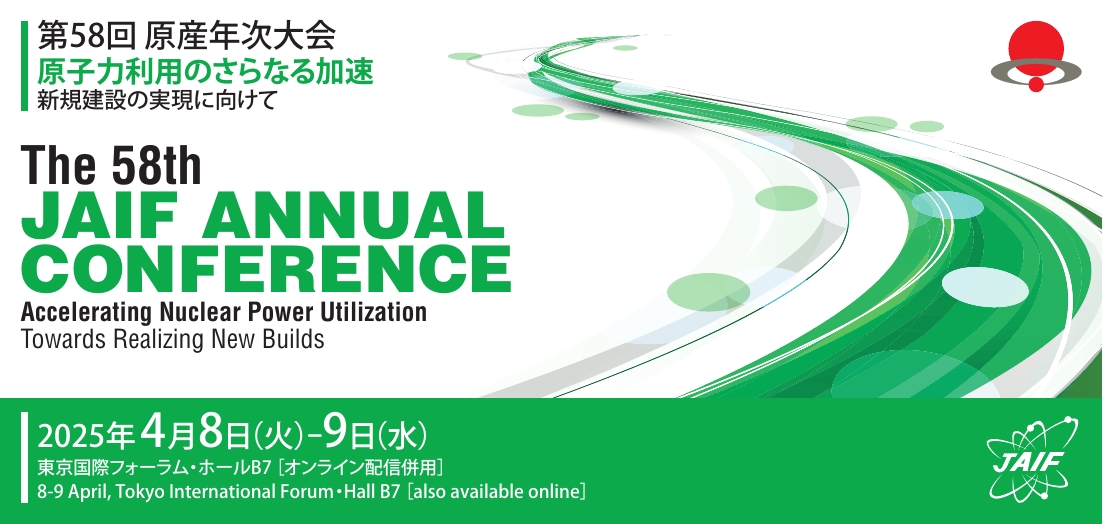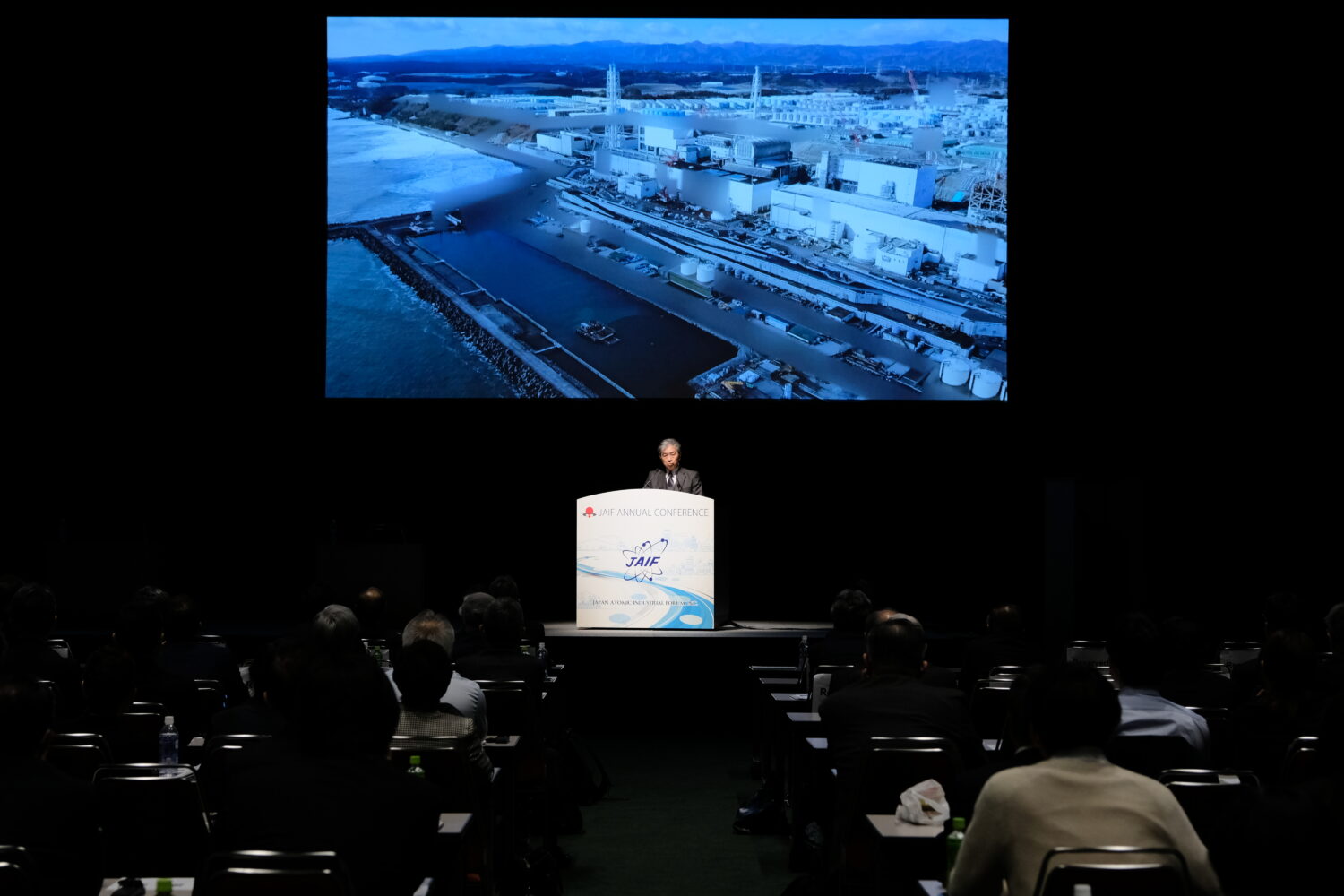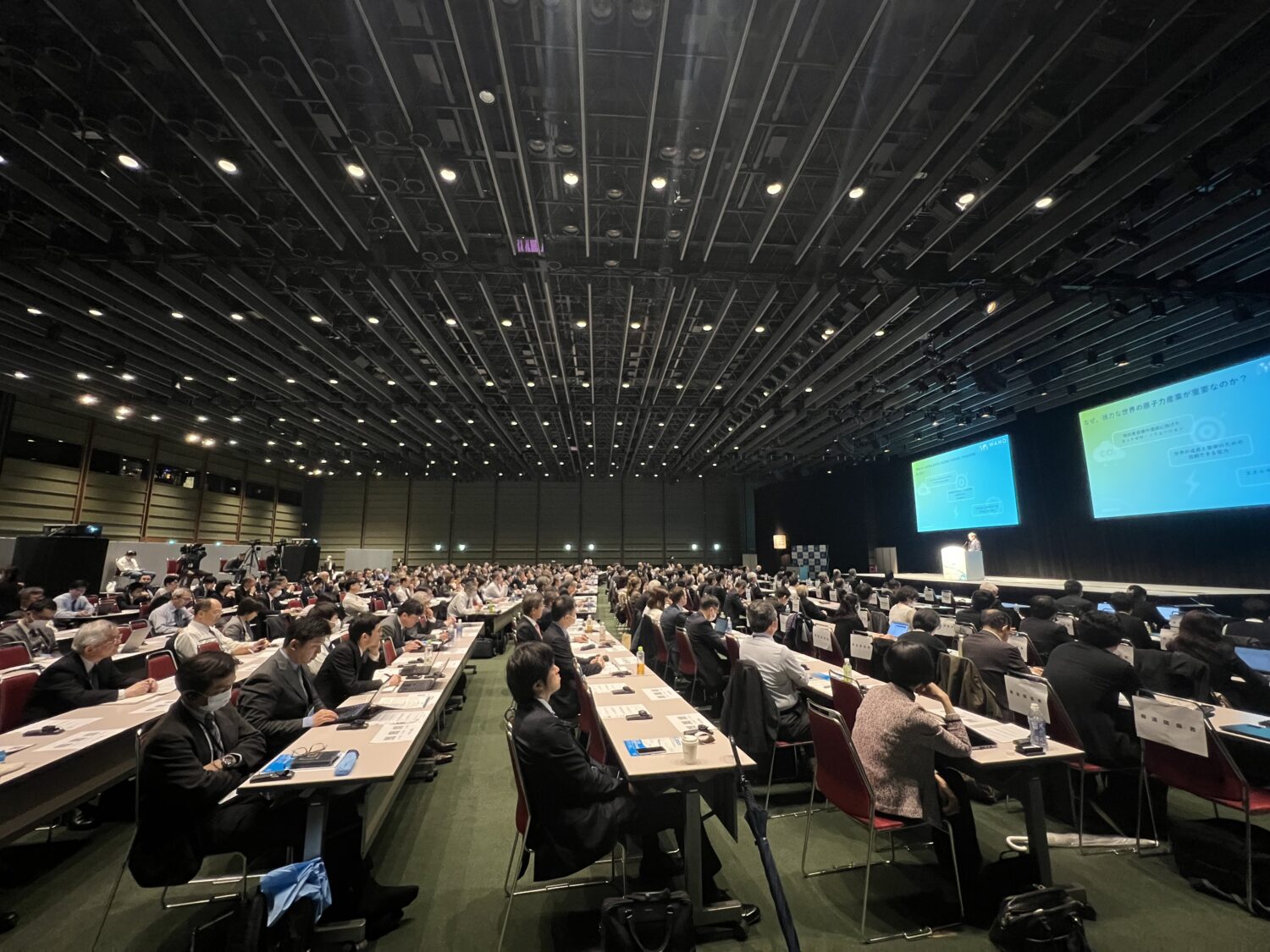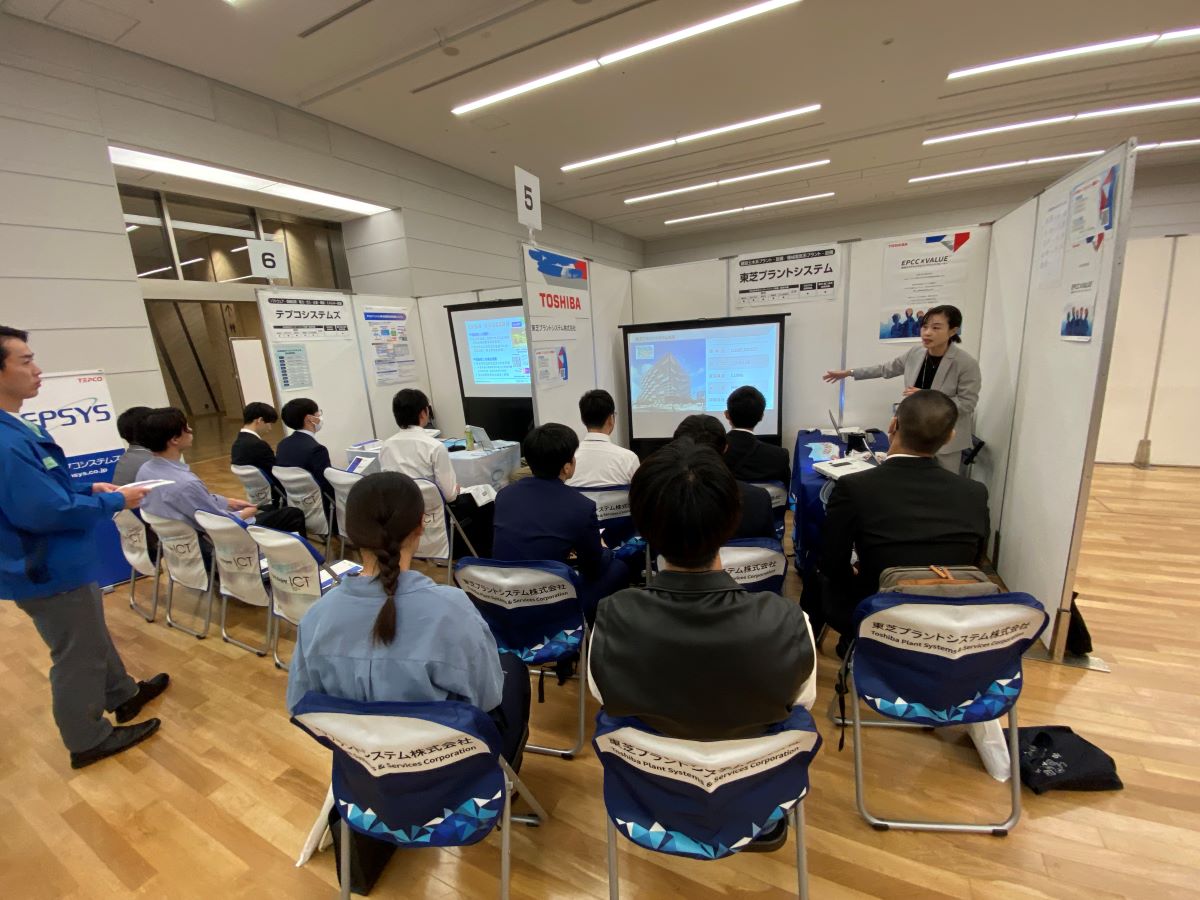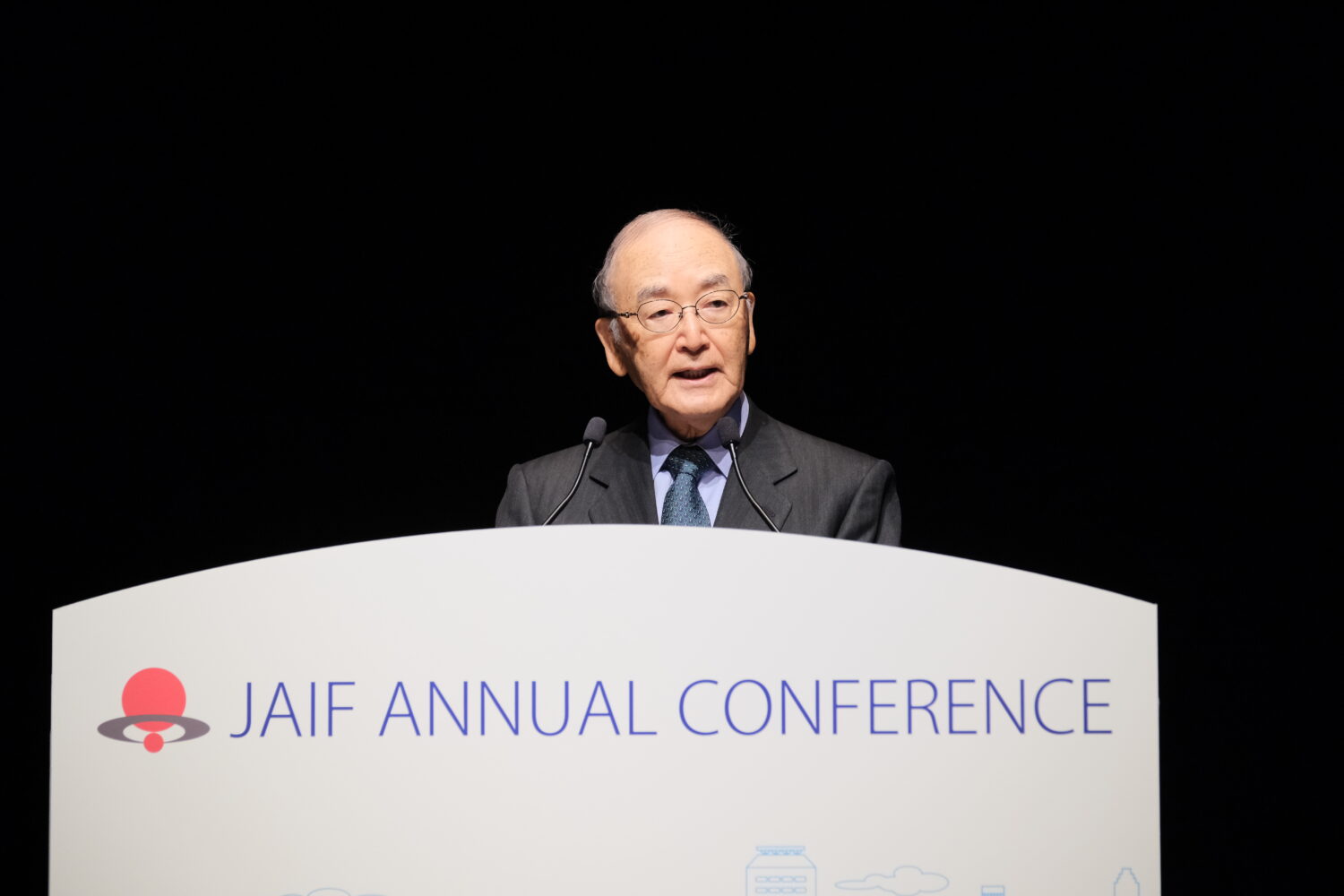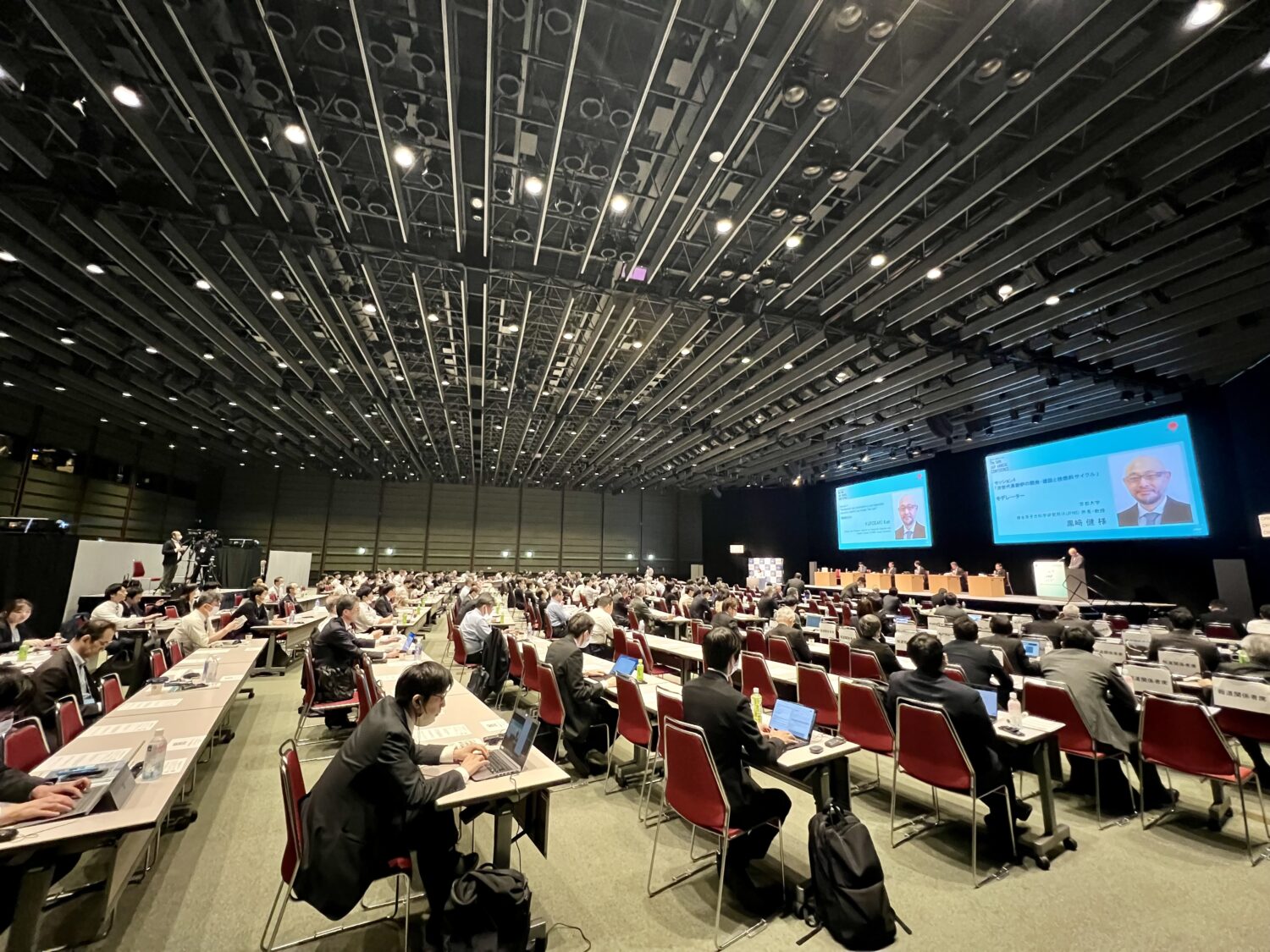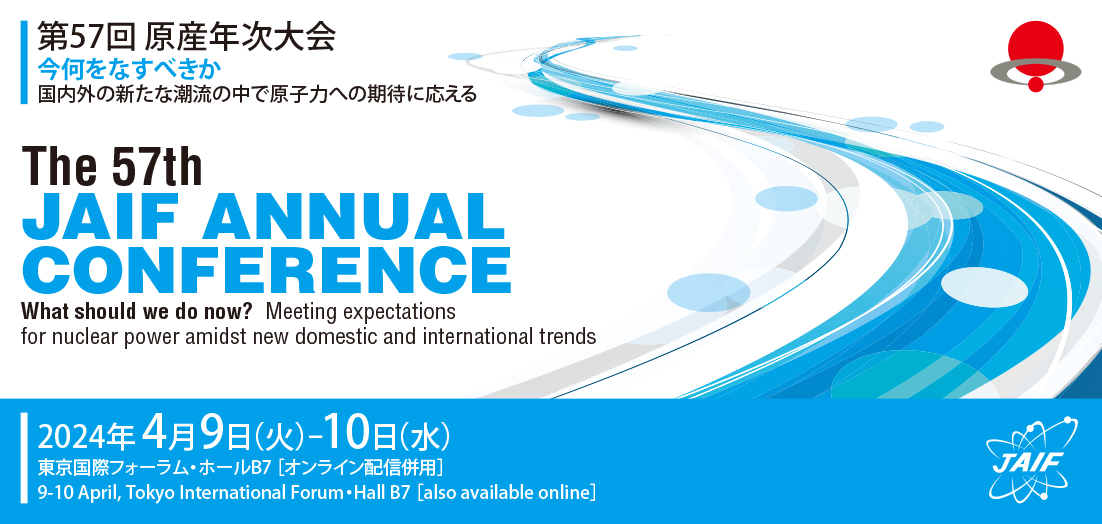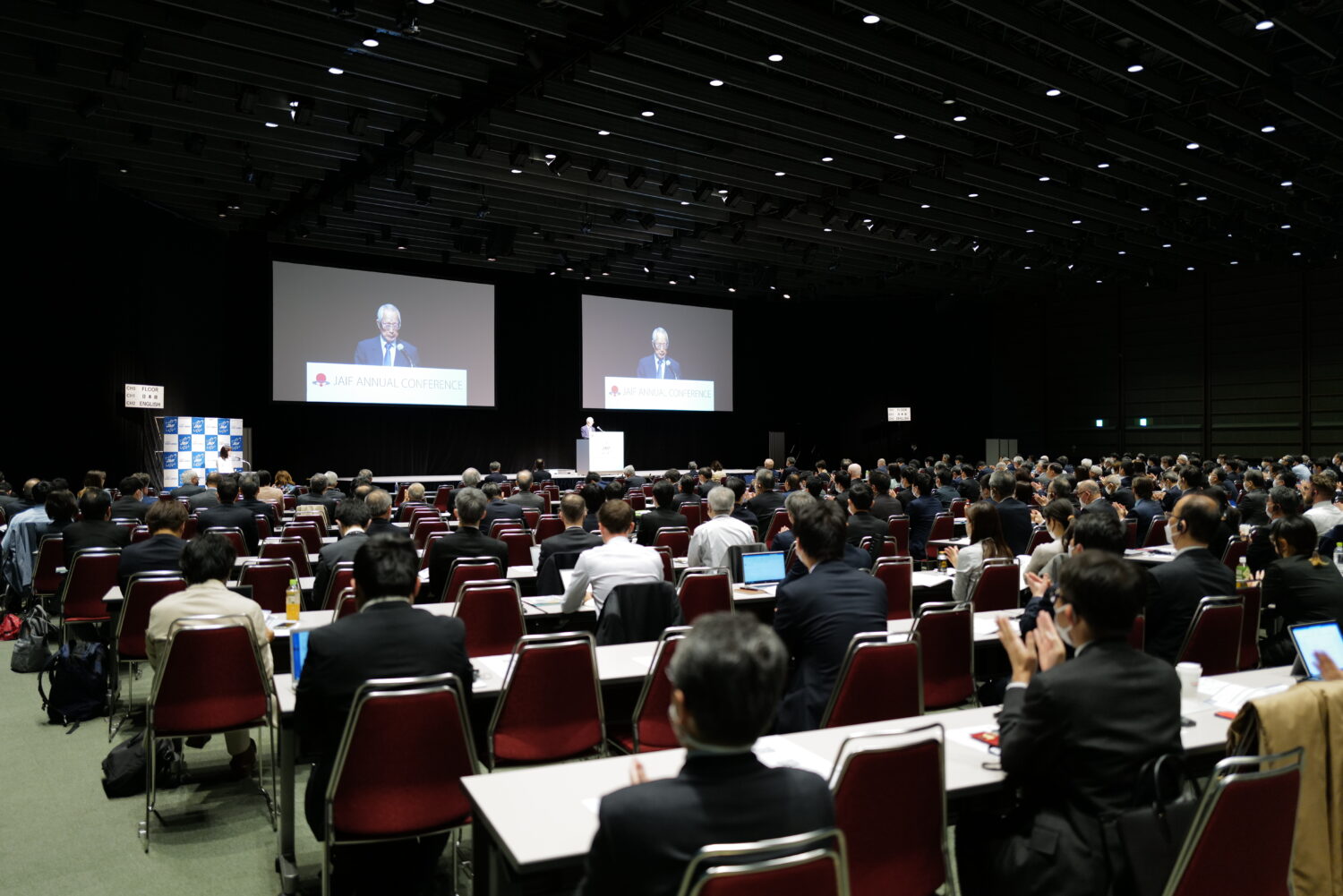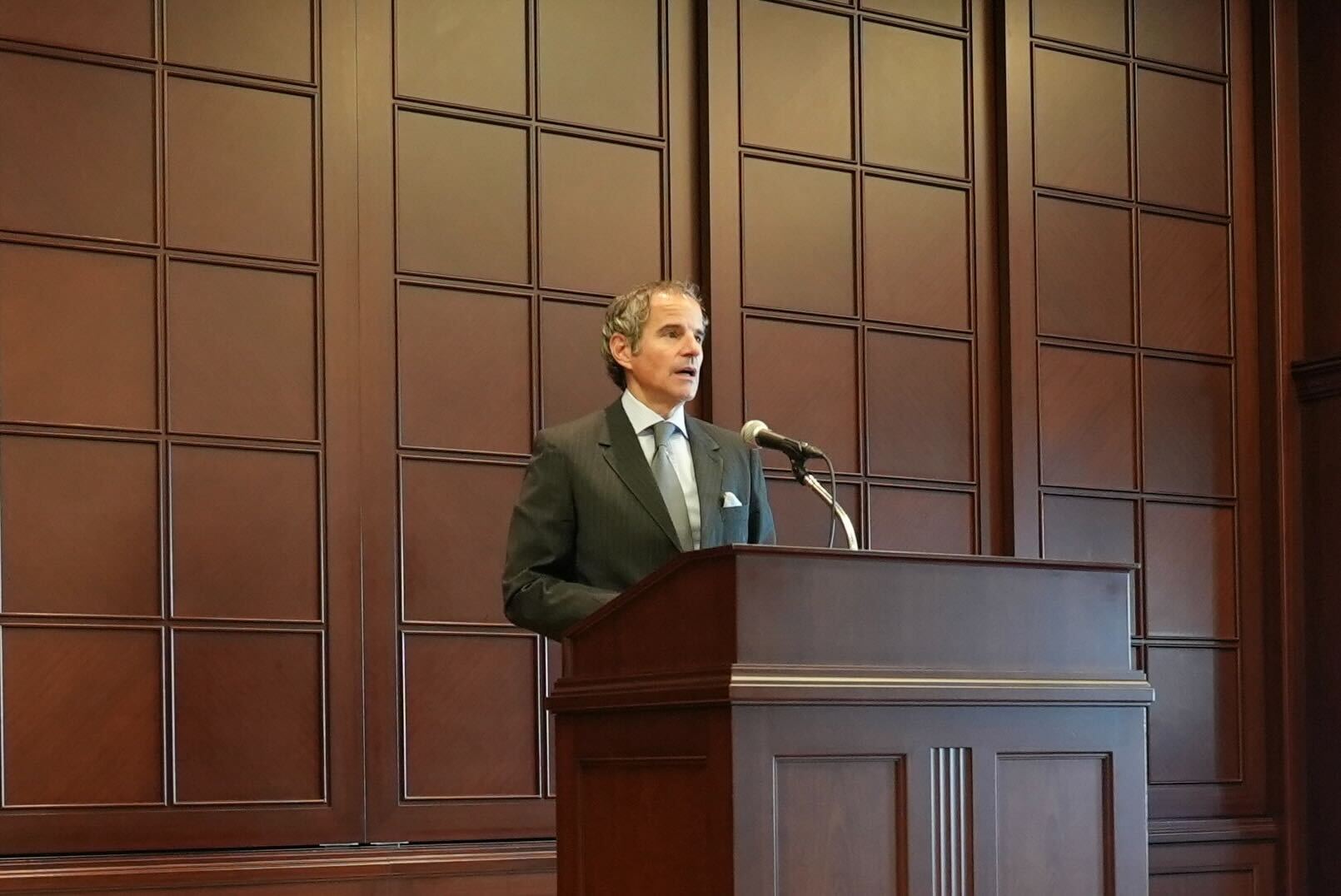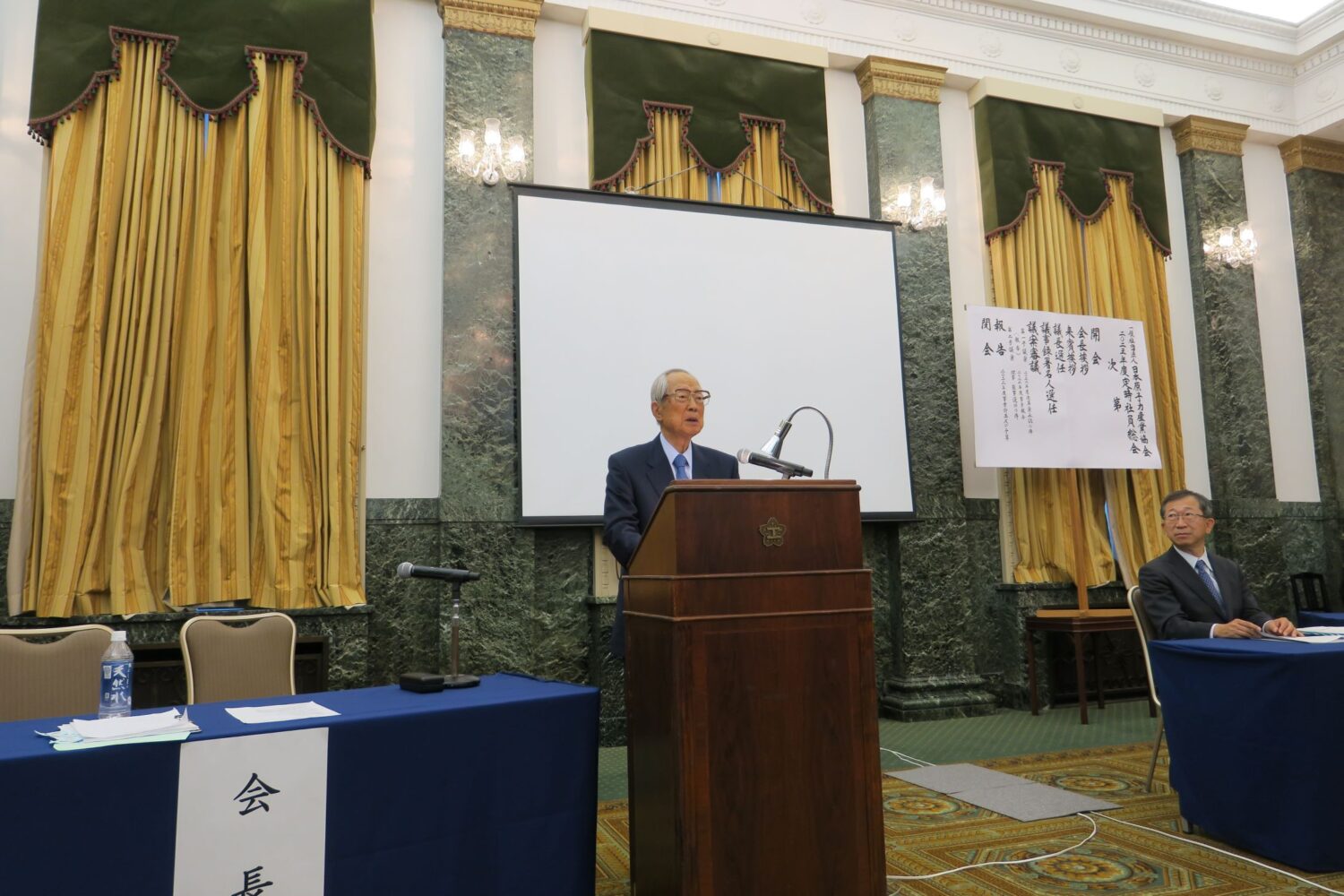Experienced in the nuclear industry, including at the South African Nuclear Energy Corporation (NECSA), she now participates regularly in international conferences and expert meetings, such as those staged by the International Atomic Energy Agency (IAEA) and World Nuclear University , where she appears as an “International Communications Expert,” disseminating information on nuclear technology from South Africa. We interviewed Ms. Mthombeni, who had been invited as a panelist to the 55th JAIF Annual Conference, and asked her about the current state of nuclear use in Africa and her thoughts on her activities promoting nuclear understanding.
 |
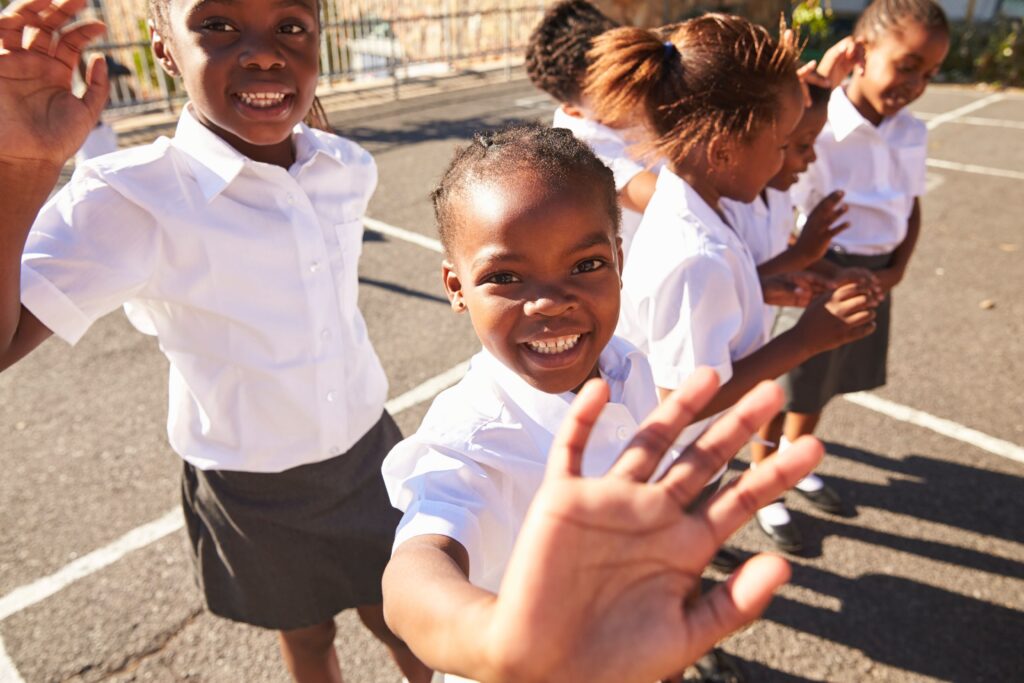 |
My name is Princess. I found my purpose when I was called by nuclear energy.
— Is there a story behind your lovely name, “Princess?”
I am a Zulu, the largest ethnic group in South Africa. My father regarded himself as a king, and he named me “Princess” as a daughter of his kingdom. Thinking that perhaps there was something hidden in me, like the blood of a royal family, I knew I had to find it. Many people use names of Zulu origin, but I like this name, and have used “Princess” since I was young.
— What type of child were you?
I was a very shy and quiet girl, yet I was brimming with curiosity. I was so interested in new gadgets. I was the kind of child who takes a radio apart to learn what is inside.
— May I ask how a princess with such strong curiosity became interested in nuclear energy?
Until I started working for NECSA, I didn’t know anything about it.
— Didn’t you have a negative image of nuclear energy before that?
No. Like many people in Africa, I was a blank slate when it came to nuclear energy.
Let me tell you how I got the job at NECSA. I was unemployed. Every day I went to the library to job-hunt on the Internet. In those days, there was no access at home. One day I got a call from an agent telling me to go to NECSA for an interview. I traveled from Johannesburg to Pretoria. It was a long way, about 80 kilometers. I was very late for the interview and I was tired when I got there. I also did not have a good impression generally, and thought I would turn down any offer. The following day they called me and talked for an hour, trying to persuade me. I eventually accepted and went to work at NECSA.
From the beginning, I found nuclear technology quite interesting. I had neither a scientific nor a technical background, and knew very little. However, through the work at NECSA, I came to know my purpose, my calling—what I should do. Since then, I have been engaged in communications to promote understanding of nuclear energy.
Nuclear power as a key player in achieving Africa’s Agenda for Sustainable Development
— Please tell us why you think nuclear power is a key ingredient in achieving the African Union’s (AU’s) Agenda 2063 for sustainable development.
The AU’s “Agenda 2063” is a blueprint for turning Africa into a major global force in the future. To achieve that, it is first necessary to end Africa’s energy poverty, the largest challenge for the continent. African countries have been referred to as “underdeveloped” and “developing” for centuries and decades. Why is that still so? Energy poverty is the primary reason. As long as energy poverty continues, there will be no development of infrastructure. Investors want to invest only in conditions of stability, which includes access to electricity. Thus, energy poverty must be eliminated by any means necessary.
On the African continent, more than 600 million people have no access to electricity. Also, 400 million of them have no access to clean water. In order to correct such a serious situation, energy poverty must be ended and energy security must be ensured.
— Why is nuclear power attractive as a power source?
The first is cost. At present, South Africa is the only country on the continent with commercial nuclear power plants. The Koeberg NPPs generates the least expensive electricity per kilowatt in comparison with coal-fired and renewable energy.
Nuclear power is a base-load power source. African countries, including South Africa, have grown and developed based on coal-fired thermal power, but they, too, are now aiming at “zero carbon” by 2050. This is an opportunity for them to lower their dependence on fossil fuels and to embrace new technology. South Africa is rich in coal resources. For it to turn away from coal, another choice is needed. Nuclear energy is the most promising.
Water shortages are serious in Africa. Many countries lack access to adequate water. There is almost no possibility of hydropower.
Mozambique has natural gas but not the infrastructure. It will take a lot of money and time to develop the infrastructure, including pipelines, needed to send natural gas to other countries.
To tackle the existing issues of energy poverty and climate change, we have to use nuclear power.
— What do you think is the best energy mix for Africa?
I support a mix that uses all available power-generation technologies. At the same time, I think we must be realistic. Some people want to realize “100% renewable energy in Africa.” If that is even possible, it will not be for some time. I promote an energy mix using a diversity of power-generation technologies, including nuclear power.
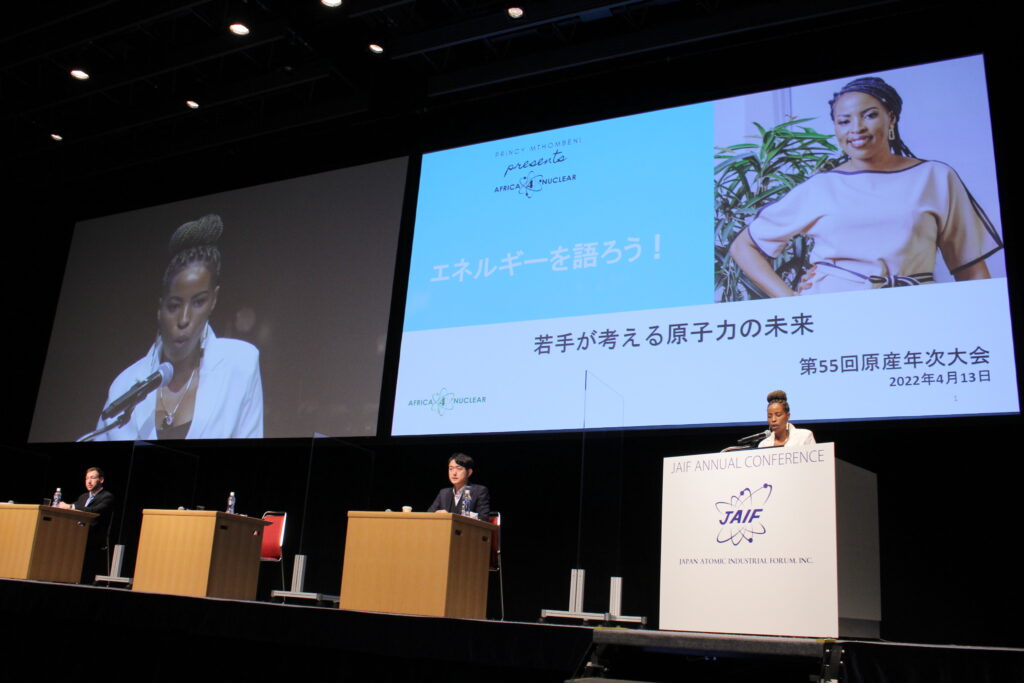 |
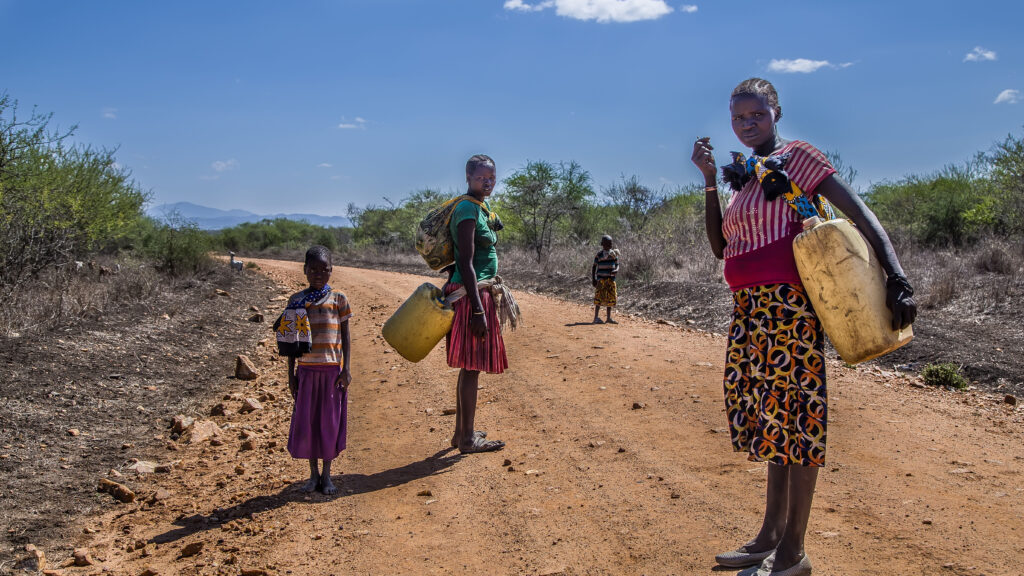 |
African countries head toward nuclear development
— What is the current state of progress in nuclear power development in African countries?
In South Africa, procedures are underway to extend the operating lifetime of the Koeberg NPPs by 20 years. Separately, plans are being carried out for additional 2,500-MW nuclear capacity. In 2020, a request for information (RFI) was issued, and a request for proposal (RFP) will be issued soon. The regulatory authority seems to have presented a series of requirements to be met in order to advance to the next step, including funding, but the country aims to complete the procurement process by 2024.
Ghana issued an RFI toward introducing nuclear power and has been doing market research. In response to the RFI, governments and private companies in Russia, South Korea, France, the United States and elsewhere have shown interest in the project. I don’t think there has been anything from Japan.
The government of Nigeria enacted five laws to regulate the development of nuclear infrastructure, processes, and more. It recently opened bidding for construction of total 4,000-MW NPPs.
— Large-scale nuclear development looks like it will proceed in Africa, doesn’t it?
The African continent will be the next-generation economic hub, which means it will be the new center of nuclear development. Let me add one more thing. Nuclear power development in Egypt is now at the stage of launching construction soon.
— Will we see more countries at the “TIER 3” stage, with long-term plans to introduce nuclear energy and nuclear infrastructure being actively developed?
I hope so. TIER 3 countries are interested in nuclear energy, but there has been no commitment from the government. Some countries in TIER 3 will advance to TIER 2 (in which governments agree to start a nuclear power program and positively develop nuclear infrastructure), and other countries will enter TIER 3. People can believe what they see. If a country has realized nuclear power, other countries will see that and realize it is possible.
How to face nuclear power risks
— Nuclear energy has tremendous benefits. There is also the danger of severe accidents and issues of disposal of radioactive waste. What do you think of the risks of nuclear power?
Any technology has risks. Let me talk only about nuclear. Existing nuclear power plants were built 50 years ago or more. Scientists and engineers today are developing nuclear plants with safety as the first priority—working to eliminate the effects of human factors.
Small modular reactors (SMRs) are being designed the same way: taking risks into account, limiting human-factor effects, integrating lessons learned from accidents in the past around the world. The development of new fuels incorporates risk reduction and proliferation resistance. Technology continually evolves, finding new ways. That is the magnificence of science.
When it comes to radioactive waste, the nuclear industry is the only industry endeavoring to manage and dispose of its own waste. In other industries, there is no way to know where the waste has gone; I think it has gone everywhere. The nuclear industry knows where its waste from 50 years ago is right now. It can explain that. Quantitatively, there is relatively little, and it can be managed. I myself wouldn’t mind if radioactive waste were brought to my backyard. Waste ready to be disposed of is quite safe. I don’t think it adversely affects human health or the environment.
— In the Russian invasion of Ukraine, NPPs came under attack. Also, the 2022 International Youth Nuclear Congress (IYNC) to be held at Sochi, Russia, was postponed. Could you comment on those?
Politics is not my field. I can comment only on the nuclear issue. Nuclear energy has long been reported on rather negatively. This is primarily due to the historic accidents at Chernobyl, Three Mile Island and Fukushima. Anti-nuclear lobbying groups have used those events for their own purposes. I think that Ukraine and Russia are well aware of what the nuclear industry has experienced. In spite of the current situation, I expect that both countries will protect their NPPs and the image of the nuclear industry as well.
IYNC is an international conference where professionals in the nuclear industry gather in the name of peace. At the moment, such an event is virtually impossible. Taking everything into account, they decided to postpone it, I think.
To promote understanding of nuclear energy in Africa
— In your activities promoting the understanding of nuclear energy in Africa, what kinds of difficulties do you face? How do you try to overcome them?
There are three difficult things.
The first is getting into the mainstream media. Many media take anti-nuclear positions, and it is difficult to penetrate as an individual promoting nuclear energy.
The second is obtaining money for advocacy campaigns. Nuclear projects are mostly national, and there are many financial restrictions. It is quite difficult to budget for communications and advocacy.
The third is explaining nuclear energy to people in Africa who are not familiar with it. I once knew nothing about it either. And, anyway, it is a complicated subject, difficult to convey in an easy-to-understand manner. Even before that, you have to get them interested and willing to listen. We have produced various videos and reached people to a certain extent. As a new attempt, I recently wrote some poems. We try various things. We try to be creative and original, and to attract attention and generate interest.
— Are video communications part of the activities of Africa4Nuclear, which was founded in 2021? What effects do you see from disseminating educational videos on nuclear power via social media?
The videos have caught the eye of people overseas. In that sense, the effect has been more than I expected. But I want more local people to watch them. Africa is a continent of young people. I want those who enjoy social media to see those videos. They are available online and should be available decades from now, too.
Originally, we made them in anticipation that teachers would use them in schools. We wanted to provoke thinking about changes that might occur in the future. Who, for example, would have predicted a few years ago that we’d all be wearing masks today? Things change. I hope teachers will continue to teach with the videos, in addition to textbooks.
Anyway, that was the motivation. People overseas saw them, and I have been invited to various international events. Nuclear experts also appear in the videos, which is another compelling feature. Last year, we recorded another series, but nothing so far this year. We have been asked when the next series will be out.
We want to position Africa4Nuclear as a “think tank”—a source for all things nuclear on the continent. We have concluded a memorandum of understanding (MOU) with an organization that will support us in our advocacy. We also have plans to enter the mainstream media more vigorously, be taken up on TV, and erect outdoor advertisements, among other things.
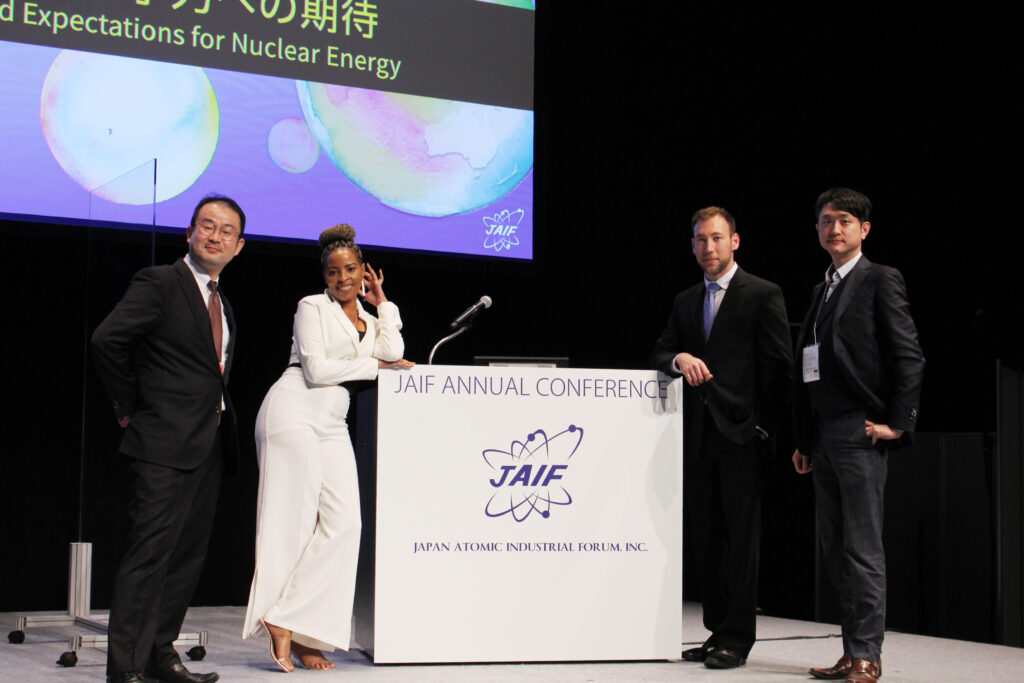 |
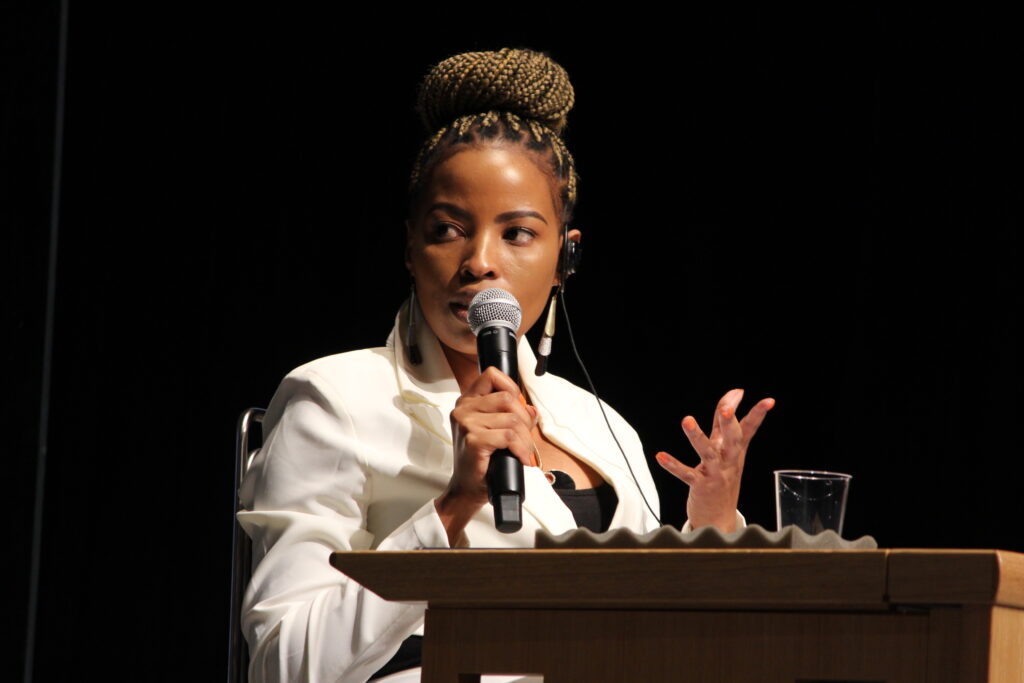 |
To promote nuclear energy to end poverty in Africa
— Please tell us what you want to focus on in the future.
We want to establish relationships with non-nuclear citizens groups. In order raise standards of living in Africa, various issues must be resolved. Among them, I think, we must pay special attention to humanitarian aspects. We want to do such activities steadily.
I would like Japanese groups and organizations to work with us. We want to create an environment enabling leaders in African countries to develop infrastructure. To do that, the public must understand and be convinced. People’s views and perceptions must be changed. Investments in communications and advocacy are needed. I really want the Japanese to cooperate with us.
— How different is the thinking on nuclear between generations?
Sometimes it seems like the younger generation does not care about anything. Somewhat older people are aware that there are serious problems in Africa that must be solved. Thus, if we convince the older generation that the lack of electricity must be overcome and that it can be done with nuclear energy, they may say “yes” to nuclear energy.
— In the face of all the difficulties, what is your motivation to continue working to promote nuclear energy?
I am deeply humanitarian. When I visit various places in Africa and see for myself the state of poverty, it is painful indeed. For me, it is not just a matter of nuclear energy and technology. It is a matter of civilization and human rights. When people are left in a terrible situation, their human rights are violated. But when people wake up each morning with nothing to do and in such poor circumstances . . . how do I even begin to talk to them in terms of “human rights?”
Here is my motivation, as expressed by Nelson MANDELA:
“Like slavery and apartheid, poverty is not natural. It is man-made and it can be overcome and eradicated by the action of human beings.”
We will pass this world to those who come after us. I believe we have a duty to improve it. Each of us, so far as we are human beings, has a role to play.
Princess Mthombeni’s Profile
An international communications specialist in nuclear technology from the Republic of South Africa. From 2007 to 2019, she was Stakeholder Liaison Officer at the South African Nuclear Energy Corporation (NECSA). Since 2019, she has been Nuclear Stakeholder Management Advisor at the Department of Mineral Resources and Energy, South Africa, assisting the government in the issuance of state nuclear communications strategies and their implementation. In August 2021, she founded Africa4Nuclear, a nuclear advocacy group focused on the public. Concurrently she serves as an executive member of the African Young Generation in Nuclear and coordinator for Stand Up for Nuclear South Africa.
Twitter @Princymthombeni


